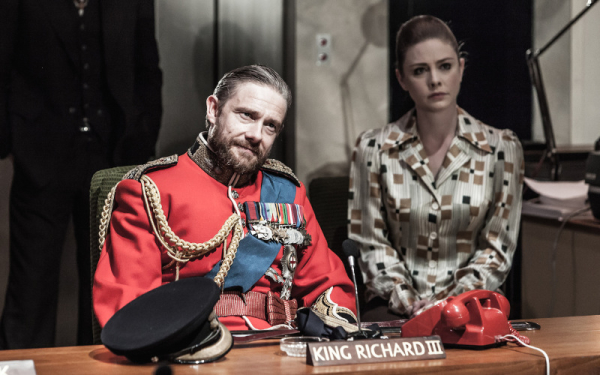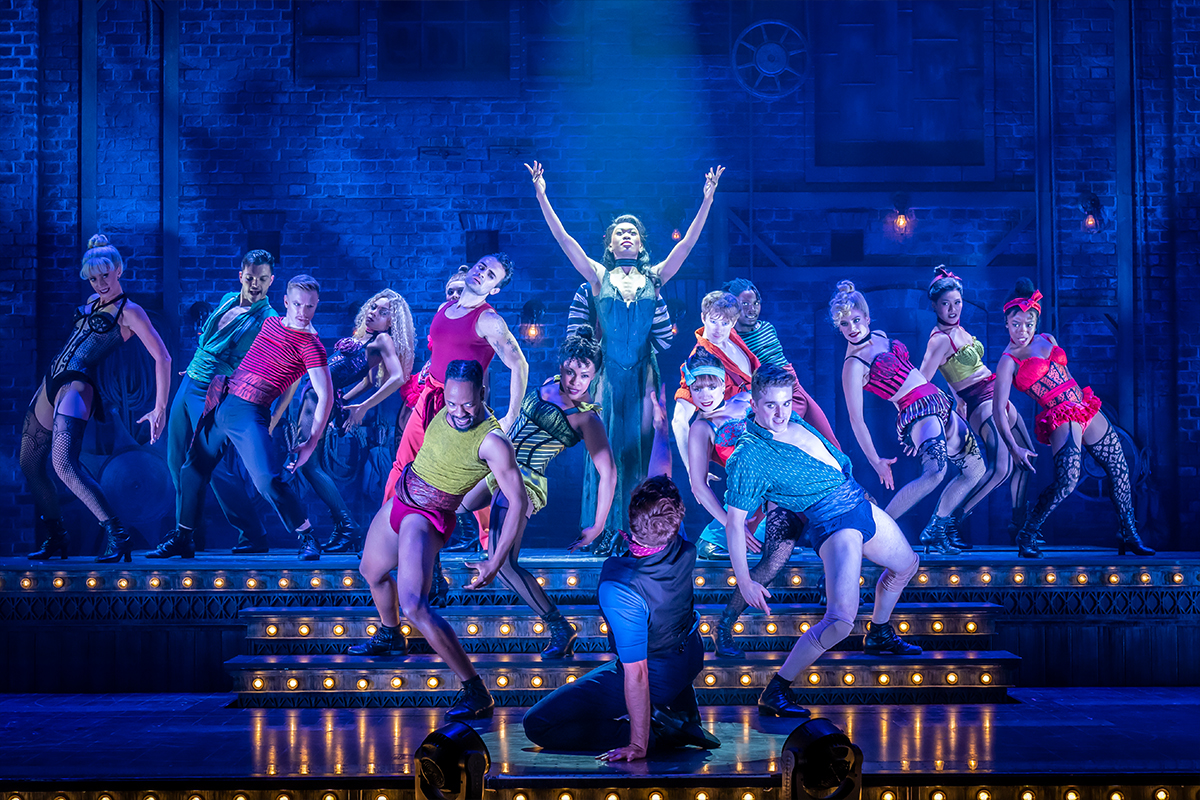Richard III (Trafalgar Studios)

Martin Freeman and Lauren O'Neil
It goes to show that you can't believe everything you hear: the audience was respectful throughout and Jamie Lloyd's cuts are not too brutal, although the pace is a bit too frenetic at times.
Naturally, most people are here to see Martin Freeman in his first professional Shakespearean role. He doesn't make a bad fist of it: he captures the humour well but what's missing is the ruthless militarism – this is a man feared for his fighting prowess and yet here he struggles to kill his own wife. We don't get any sense of the fighting machine. Richard may be a duplicitous, conniving bastard but he's a brave and ruthless one; that element is missing.
But there are some nice little touches: for example, his shrug to Tyrell when the assassin glimpses the body of Queen Anne neatly captures the banality of the killing.
"For all of Freeman's tics and grimaces, there's no real explanation of why he's so intent on seizing power"
Lloyd's production, set in the 70s, takes as its starting point the paranoia among the middle classes, their fear of the Labour government and the surreptitious plans for a coup. I'm not sure the concept fully works; the wars were a drawn-out family feud and there's little sense that these are internecine quarrels. Soutra Gilmour's set, based on a 70s office, is a cramped space for the actors (it got me wondering how many injuries from desk edges there might be).
It's a strange production indeed where Buckingham is more menacing than Richard, but Jo Stone-Fewings is more than a henchman; in Lloyd's production, he and Richard cook up the coup between them – him the smooth bureaucrat complementing Richard's military persona. There's an excellent, shifty Hastings too from Forbes Masson, while Gina McKee captures well the anguish of a queen grieving for a husband and children.
I was very much reminded of Rupert Goold's Macbeth: the same industrial setting, the flickering lights, the discordant music and the onset of a tyranny; but what's missing is the sense of a political catastrophe unfolding. For all of Freeman's tics and grimaces, there's no real explanation of why he's so intent on seizing power and why he's so grimly determined to hang on to it.










